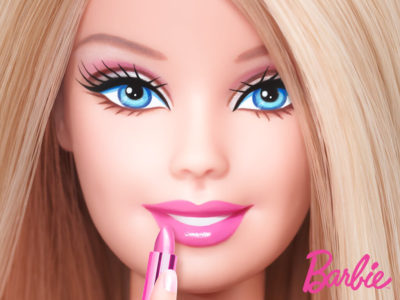I’m 5 feet eight inches tall, 147 pounds, shed my hair like a dog, have next-to-no curves, extra-thick atrophied arms from playing high school sports and eyelashes that function more like blinders. Thanks to the seemingly perfect specimens that graze media content, I consider my attributes to be “problems.” While impaired vision is an occasional safety hazard when I forget to employ my eyelash curler, the rest of my body problems are irrelevant to my day-to-day life. And yet, whether or not I’m reaching a beauty ideal is prioritized in my daily thoughts.
We’ve all read a generic article scrutinizing the media’s portrayal of beauty, of what is attainable and of what is expected. In the 15 minutes after being reminded that beauty is in the eye of the beholder, I feel empowered and above the pressure of the images thrown at me from every angle.
Dancing on the table in a bra and underwear ensues as I sing Christina Aguilera’s “Beautiful” as loud as possible. Yet, later that same day I find myself checking my bank account to see if I can afford that organic “super-food” that will help me lose 10 pounds by yesterday. The reality is, no matter how many times we are reminded that we don’t have to be a size zero to be beautiful, many of us still try to inch closer to that goal. Apparently, that also means that I have to stop inching closer to the Hershey’s kisses, but that’s a battle for another day.
The real issue with the media is that it has somehow gleaned the power to define beauty. Even when trying to debunk the stereotypical “skinny, tall, tan, and perfectly symmetrical” portrayal, outlets often perpetuate this unattainable image. In a Cosmopolitan article earlier this year titled, “Gross Website Describes Their Definition of ‘The Perfect Woman’,” Lane Moore criticized WhatsYourPrice.com’s definition of beauty, which is based on how much money men would spend on a first date depending on a woman’s appearance. She summarizes the findings with the very eloquent male opinion of “skinny blondez r pretty lol.”
While her point was recognizing the ridiculousness of the site, she spends much of her article articulating that the stereotypical standard of beauty is what men have claimed to want from women. Not to mention the article is accompanied by an image of four white, blonde and skinny celebrities. Using media to criticize this image inadvertently perpetuates it. Sure, Moore may intend to tell me that I don’t need to be 105 pounds to be desired. But when that tidbit is accompanied by a statistic saying that men want me to be 105 pounds, it’s hard to ignore.
Here’s what our world needs more of—showing that the stereotype of beauty is not always a healthy option, and changing what we label as “beautiful.”
No, I’m not suggesting we make supermodels feel badly about their naturally flawless bodies (It’s not Candice Swanepoel’s fault that she’s perfect.) But it is important that we reprioritize. Health is more important than evading fat rolls in a picture. I’m saying this fully acknowledging that I am a hypocrite, and hate every picture of myself in which you can see my fat rolls.
Not all media is bad. Sites like Healthyisthenewskinny.com that promote ideas about lifestyle over body type are much better media examples of beauty than the size negative 4 models in high fashion magazines, wearing clothes that would only have fit you when you were 7 years old.
The fact that beauty is more often than not referring to aesthetics as opposed to intentions, accomplishments and intellect should change. The actual definition of beauty is “the quality present in a thing or person that gives intense pleasure or deep satisfaction to the mind.”
I’m not discrediting the fact that really toned, symmetrical people are beautiful-looking. Sure, they are. But, contrary to popular belief, “looks” aren’t the only thing that can be beautiful. I will give $100 to anyone who has ever read a magazine with an article titled “People Magazine’s Most Beautiful Thinkers” or been told, “Your sense of humor gives deep pleasure and satisfaction to my mind.” Please, step right up.
Beauty is complex. It is layered and profound and should take more than a glance at an absurdly edited photo to be used as a label. Beauty is also entirely subjective (yep—that whole “eye of the beholder” cliché is damn right.) And yet, thanks to the media, we’ve created a universal definition that is incredibly hard to resist pursuing and even harder to accomplish.
I want to be a beautiful writer. I want to have a beautiful heart. I want to think beautiful thoughts and have beautiful goals and do beautiful things. I want to be called beautiful for who I am in addition to how I look. I’m not naïve. The aesthetic aspect of beauty is never going by the wayside. But it can, and should, be expanded—because that would make a beautiful world to live in.



















